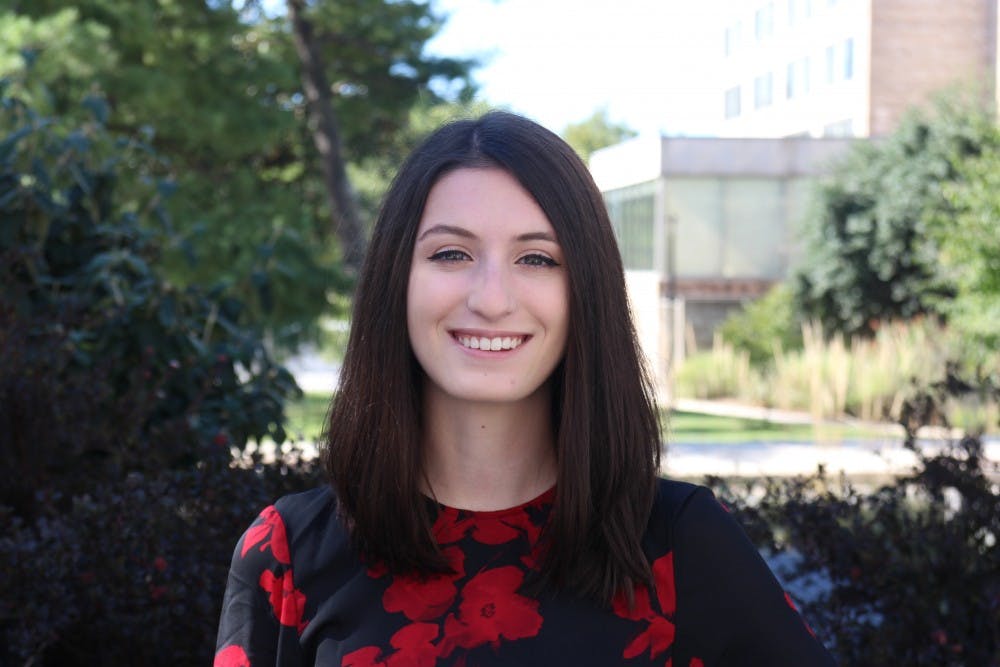By the time I graduate American University, my accrued debt could potentially buy me a small house. My dad explained this to me in regards to the loan I borrowed from the bank and how it would affect me financially in the long term. He referred to the debt as my mortgage before my actual mortgage.
The expensiveness of college is not a new idea to me. Before even attending college, I heard this rhetoric, that no matter what school one chooses, no one can afford it. I have learned this is not completely true. The affordability of higher education depends on an individual’s situation surrounding their college choice, their current financial standing and most importantly, how generous a university is with their financial aid.
The Free Application for Federal Student Aid (FAFSA) defines financial aid as money from the government that helps you pay for college. Any student who needs monetary assistance from the government to pay for their post-secondary education can apply for financial assistance, yet you will only receive aid if deemed eligible. If you do receive aid, FAFSA then divides it into three different categories: grants, work-study and loans. Grant money does not need to be repaid. Work-study awards must be earned through a campus-provided job. Finally, loan money must be repaid, alongside accrued interest for unsubsidized loans.
While AU prides itself in providing “80 percent of incoming students with financial aid” and that “nearly $85 million in financial aid is awarded to undergraduates per year,” American actually placed eleventh in the category of “Financial Aid Not So Great” by the Princeton Review’s annual college rankings. This ranking reflected the feelings of AU students who responded to a Princeton Review survey. When further examined on Princeton Review’s website, approximately 61 percent of AU undergraduate students will borrow from a loan program.
During my freshman year, I was included in the statistic of students receiving financial aid. I received such a quality aid package that it helped me choose to attend the University. Most of my aid came from a grant I received from AU and then another small portion of it was from outside scholarships. However, in my upcoming sophomore year, I lost almost half of my institutional grant from the previous year.
I lost most of the aid because one question changed my eligibility on the FAFSA. In May of this past year, my second oldest sister graduated from college. FAFSA only sees that my family has one student in college, and on paper, we should be able to afford my tuition. I am one of five children, and while not all of my siblings are dependents, I still witness my parents work hard to provide the life we lead. To stay at AU, I had to take out a large loan and will most likely have to continue taking out loans in the coming years.
The colleges listed under the “Great Financial Aid” section in the Princeton’s Review are widely known institutions such as Vanderbilt (#1), Yale (#7) and Brown (#17). Ivy League schools have larger endowments and donations than schools such as AU which allows them to provide more aid to their incoming students.
However, I do believe that the University could be doing more to help students afford their tuition. We may not have the same funding as Ivy League universities, but we do still have AU donors who did give large amounts of money to help better the school. Recently, AU received a $10 million donation from Jeff Sine, an alumnus, to aid in the creation of the bipartisan Sine Institute of Policy and Politics. While the Sine Insitute will be beneficial and serve its purpose, I wish I heard about more large-sum donations going towards financial aid. Even without an Ivy League title, AU itself is also a prestigious college and should reward its students more for their efforts.
I am privileged to be attending such a distinguished university, yet I have a fellow classmate from high school who had to decline his acceptance to American due to the restrictive cost. From the other stories I have heard around campus, this is not an uncommon occurrence.
To quantify other students’ experiences surrounding financial aid at AU, I created a Google Form survey where I asked five questions: three required, two optional. I asked, “In a sentence or two, explain your experience and level of satisfaction with your financial aid at AU?” Anny Pena, a sophomore in the School of International Service who responded to the survey, said her financial aid experience at AU has been difficult.
“The first year my financial aid package was not enough, but I had scholarships to cover the cost. As I have entered my second year, I have received less help and it has been frustrating dealing with the new gap presented,” Pena said. “They should ensure that financial aid packages do not change drastically as a student should not be hit with the reality that they need more money for their next semester after their financial aid package arrives late.”
Alongside my concern in paying for college now, my post-graduation goals don’t aid in alleviating my financial concerns. I aspire to become a journalist, a highly competitive and limited career, where “a starting salary is likely to fall between the 10th percentile wage of $20,000 and the 25th percentile wage of $25,720,” according to the Chronicle of Higher Education. If I could realistically save my entire first year’s salary and put it towards paying back my student debt, it would not even begin to cover it. That makes me worry that the adage of pursuing what you are passionate about is not always financially sturdy.
Everyone deserves a quality education, like the one AU is providing, and should be able to pursue what they love, but I cannot help but wonder: at what cost?
Stephanie Mirah is a sophomore in the School of Communication and a columnist for The Eagle.





